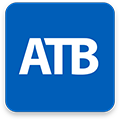We’re diving into the highlights from our recent "Ask Me Anything" webinar, where Bontu Galataa, ATB Entrepreneur Ecosystem Strategist, sat down with Brianna Blaney, CEO and Jaime Proctor, Head of Growth at Pocketed. (Missed part one? Check it out here).
Read on for the top questions asked and key knowledge gained, offering practical advice and strategies to help you make the most of available financial opportunities.
Grants vs. tax credits: understanding the differences
Grants and tax credits are both valuable tools for businesses, but they function differently:
- Grants require you to apply in advance of undertaking the activity or project you seek funding for. Approval is necessary before you spend money, meaning you need to plan ahead.
- Tax credits, on the other hand, are typically retroactive. This means you qualify for them after you’ve spent money on an eligible activity. The key is to ensure you submit your application within the required timelines.
Understanding these distinctions is essential for successfully leveraging the financial support available to your business.
Hiring grants: What you need to know
Hiring grants are available, but they come with specific eligibility requirements. The role you’re hiring for, the project it supports, and the candidate’s profile all play a role in determining eligibility. Here are the five key demographics widely eligible for hiring grants:
- Students: Currently enrolled in a Canadian postsecondary program, students of all ages can be eligible.
- Youth: Individuals 30 years or younger are often eligible, particularly those new to the workforce.
- Unemployed individuals: Those who are recently unemployed or underemployed may qualify.
- Academic collaborations: If you’re working with a postsecondary institution on research or innovation, you may be able to hire through grant funding.
- Newcomers: Individuals who have achieved permanent residency or Canadian citizenship in the last five years may also qualify, especially in specific industries.
It’s important to note that international students and individuals on temporary work permits are largely not eligible for these grants, though there are rare exceptions.
The reality for mental health businesses
A common misconception is that certain types of businesses, like mental health care businesses, are entitled to specific grants. However, it’s crucial to understand that grants fund projects and activities, not entire businesses.
For example, being a woman-owned business or a mental health care business does not automatically qualify you for a grant. Instead, think about the specific activities you’re undertaking to build your business—these are what grants are designed to support. For example, if your project involves developing new marketing technology for your website, that could be a fundable activity.
If you’re a for-profit mental health business seeking funding for mental health programming, know that these grants typically go to nonprofits. However, you can still access funding by partnering with a nonprofit or establishing a nonprofit arm within your organization.
Grants for women-owned businesses: The hard truth
Many women entrepreneurs seek grants specifically for women-owned businesses. However, the reality is that less than 2% of available grants are exclusively for women-owned businesses. While this figure is discouraging, it’s important not to limit yourself to these specific grants alone.
As a woman-owned business, you have access to 100% of available grants, not just the 2% designated for women. Often, you may even have priority access to programs that don’t specifically target women but still favor equity-deserving communities.
Corporate competitions: Another avenue for funding
Another great way to secure funding is through corporate competitions. Many large companies, like Visa and Telus, offer competitions that prioritize diversity and often award cash prizes and other resources to small businesses. These competitions are highly competitive but can be a valuable source of funding and exposure for your business.
If you need professional assistance in crafting a compelling application for these competitions, Pocketed recommends using a grant writer or grant writing service.
How Pocketed Works
Pocketed is offering free access to their software for ATB clients and community members (click here or use referral code ATBxGRANTS101 for access), however, services like grant writing and consulting are paid offerings. Pocketed aims to work with clients on a success basis whenever possible, meaning they only get paid if your application is successful. However, certain programs do not allow this structure, so in those cases, Pocketed charges project fees or hybrid fees, which combine a small deposit with a success-based fee.
Recap
In conclusion, our Ask Me Anything webinar provided valuable insights into the nuances of grants and funding opportunities. The expert responses highlighted key distinctions, eligibility requirements, and strategic tips for securing financial support. By leveraging this knowledge, you can better navigate the complex landscape of grant funding and maximize your chances of success.
Looking for key advice to grow your business and gain access to funding and financing opportunities? Join ATB for upcoming webinars where we dig into key challenges faced by business owners.
